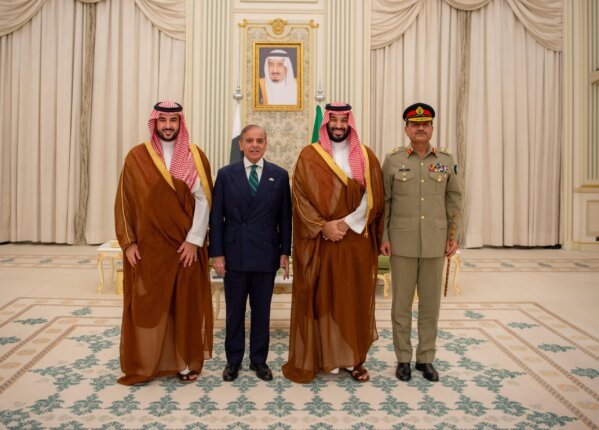
Recently, a new development has occurred between Pakistan and Saudi Arabia. The major element of the agreement is that “if an attack occurs on one partner, it will be considered an attack on the other.”
This development has been particularly beneficial for Pakistan, which since its inception has faced constant challenges from India. It is also a challenge for India, a country that often shows interest in conflict without reason. In the future, will India think twice before any aggression against Pakistan?
Throughout history, numerous wars have taken place between India and Pakistan. In those wars, the Indian government faced serious challenges, while Pakistan achieved regional victories. A recent example can be found in the last conflict between Pakistan and India, where India suffered defeat and its government faced criticism from opposition parties for admitting that the war was not an easy challenge to face.
After winning the war, Pakistan found the opportunity to join the Strategic Mutual Defence Agreement (SMDA), which appears to be the best approach to counter any attack in the future.
Key Questions Raised
Is it a fact, or simply a desire, that Muslim countries want a safe environment in the world without aggression against them?
Do Muslim countries want an alliance similar to NATO to face future challenges?
If another war breaks out between India and Pakistan, will Saudi Arabia support Pakistan, given its good relations with India? Could this agreement even help improve Indo-Pak ties?
Will this agreement extend support to Palestine, or will Israel respond in the ongoing Gaza war?
These questions arose when Saudi Arabia and Pakistan sealed mutual agreements on 17 September 2025, which will become effective under the Strategic Mutual Defence Agreement (SMDA) in both social and economic relations.
Economic Dimension
Pakistan is also struggling with serious economic issues. Saudi Arabia has shown interest in investing in Pakistan’s oil, gas, mineral, and agricultural sectors. This agreement reflects mutual cooperation and opens doors for people-to-people and business-to-business interactions. It is expected to improve Pakistan’s economy and strengthen its relations with other Middle Eastern countries.
Regional Context and Israel’s Role
After this agreement, another question emerges regarding Israel. In the recent past, Israel has committed crimes of genocide against Muslim countries, launching strikes against Lebanon, Palestine, Yemen, Syria, and Tunisia. The air strike on Qatar, however, was the first against a Gulf state that is not a NATO ally of the United States.
Following nearly two years of Israel’s genocidal war on Gaza, which has killed over 65,000 Palestinians, expectations were high among Muslim nations. In response to the strike on Doha, an emergency Arab/Islamic summit was convened. Nearly 60 states attended, representing the world’s two billion Muslims.
The summit’s tone was both somber and tough. It showed solidarity with Qatar, condemned Israel’s attack, and sent a strong message to both Israel and the United States. The question now is: will the U.S. take future action to reduce Israel’s crimes of genocide after Arab states united to condemn them?
Pakistan’s Relations with the Middle East
There is no doubt that Pakistan has long enjoyed good economic relations in the Middle East. Cooperation was particularly significant when Pakistan’s economy was struggling last year. At that time, Saudi Arabia and the United Arab Emirates extended crucial support during the crisis.
It is a fact that this new agreement will strengthen people-to-people and business-to-business connections between Pakistan and Saudi Arabia. Looking ahead, the Middle East is likely to witness improved cooperation, as both countries enjoy strong relations and also have significant military capability to counter any aggression against them.
The final question remains: will both countries learn from the Western alliance model to face future challenges?



